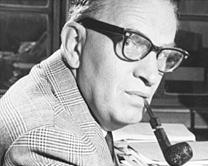Josef Korbel
| Josef Korbel | |
|---|---|
 |
|
| Personal details | |
| Born |
20 September 1909 Geiersberg/Kyšperk, Austria-Hungary (now Letohrad, Czech Republic) |
| Died | 18 July 1977 (aged 67) Denver, Colorado, U.S. |
| Spouse(s) | Anna Spieglova |
| Children |
Madeleine Jana Korbel Katherine Korbel John Korbel |
| Parents | Arnost and Olga Korbel |
| Religion | Catholicism (Previously Judaism) |
Josef Korbel (20 September 1909 – 18 July 1977) was a Czech-American diplomat and political scientist of Jewish descent. He served as Czechoslovakia's ambassador to Yugoslavia, the chair of the United Nations Commission for India and Pakistan, and then as a professor of international politics at the University of Denver, where he founded the Josef Korbel School of International Studies.
His daughter Madeleine Albright served as Secretary of State under President Bill Clinton, and he was the mentor of George W. Bush's Secretary of State, Condoleezza Rice.
Josef was born on 20 September 1909 to Arnost and Olga Korbel, a Jewish family who both were killed in the Holocaust. At the time of his daughter Madeleine's birth, Josef was serving as press-attaché at the Czechoslovak Embassy in Belgrade.
Though he served as a diplomat in the government of Czechoslovakia, Korbel's politics and Judaism forced him to flee with his wife and baby Madeleine after the Nazi invasion in 1939 and move to London. Korbel served as an advisor to Edvard Beneš, in the Czech government in exile. He gave speeches for the BBC's daily broadcasts to Czechoslovakia and Yugoslavia. During their time in England the Korbels converted to Catholicism.
Korbel returned to Czechoslovakia after the war, receiving a luxurious Prague apartment expropriated from Karl Nebrich, a Bohemian German industrialist expelled under the Beneš decrees. Korbel was appointed as the Czechoslovak ambassador to Yugoslavia, where he remained until the Communist coup in May 1948. Around this time, he was named a delegate to the United Nations Commission for India and Pakistan to mediate on the Kashmir dispute. He served as its chair, and subsequently wrote several articles and a book on the Kashmir problem.
...
Wikipedia
